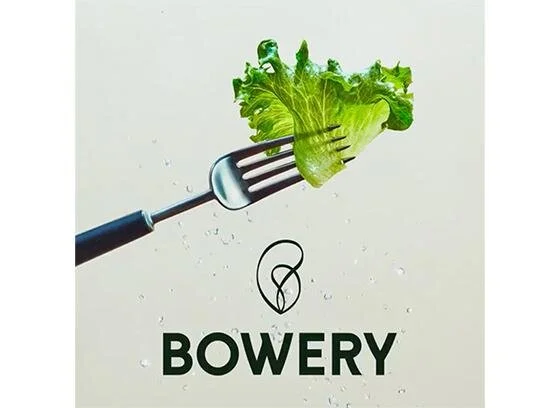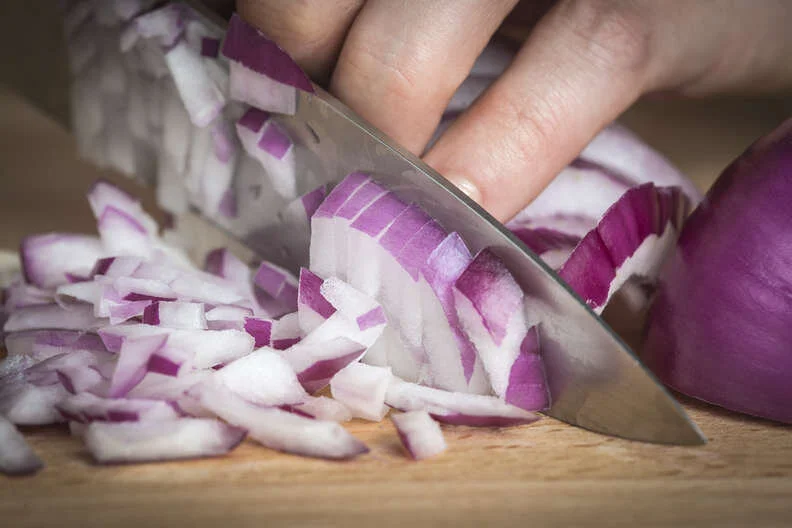
Welcome to iGrow News, Your Source for the World of Indoor Vertical Farming
1-in-3 Agree This Grocery Store Has The Worst Quality Produce
Mashed had these big-box shoppers in mind when we conducted a recent survey of 593 U.S. residents. We asked, "Which grocery store has the worst-quality produce?"
By Ralph Schwartz
July 26, 2021
Some people prefer to grow their own garden or pick up their produce at the farmers market, straight from the person who grew it. On the other hand, a lot of us like to get our apples and lettuce at the same store where we buy our toilet paper and home furnishings. Mashed had these big-box shoppers in mind when we conducted a recent survey of 593 U.S. residents. We asked, "Which grocery store has the worst-quality produce?" We gave our survey participants eight options: Aldi, Costco, H.E.B., Kroger, Meijer, Publix, Target, and Walmart.
Before we reveal which of these retail chains our respondents considered the worst, let's take a look at who didn't get a lot of votes. Like golf, low scores are good in this survey, and three grocers each got less than 7% of the total vote. Faring best was Publix, with 6.41% of the votes. Publix might have been off the radar for most respondents, as the chain only has locations in seven Southeast states, according to the Publix website. Publix doesn't necessarily have a sterling reputation for produce. If it's known for anything, it's the fried chicken and sub sandwiches, per The Kitchn.
Costco and Kroger tied for second-lowest vote total, at 6.91%. This is more impressive, as both are truly national chains. The only real knock on Costco's produce is that a lot of it is sold in bulk, and normal-sized families might not use it all before it spoils, per CNBC.
Our survey says Walmart has the worst produce, despite a recent upgrade.
Now for the bad news in the Mashed survey that asked people which grocery store has the worst produce. The runner-up for worst produce was Target, which drew 16.53% of the vote. But Target was no competition for Walmart in the produce-quality race to the bottom. Walmart was our clear, er ... winner, with 33.39% of the total vote. Our survey respondents seem to know low-quality produce when they see it. Their answers matched a 2019 survey by Consumer Reports, which also ranked Target and Walmart's produce among the worst.
Target had planned to install vertical farms inside its stores beginning in 2017 (via Business Insider), but it's not clear whether this plan for getting the freshest possible produce in their stores ever got off the ground. Whatever the case, it has done little to improve Target's poor reputation for produce.
Meanwhile, Walmart made major improvements to its produce departments in 2020, according to Supermarket News. But the changes were more about the department's layout than the quality of the food. Wider aisles and lower displays were intended to reduce crowding and make it easier for shoppers to see the produce. But if you don't like what you see, then a redesign may not be much of a game-changer. Walmart may need to do more to lose its image as the worst grocery store for produce.
Prima Wawona Peaches Shipped To More Than A Dozen Countries
Prima Wawona peaches involved in a recall in the U.S. and Canada because of salmonella were shipped to more than a dozen other countries.
August 30, 2020
Prima Wawona peaches involved in a recall in the U.S. and Canada because of salmonella were shipped to more than a dozen other countries.
So far, Canada, Singapore, and New Zealand have recalled the peaches, according to an Aug. 28 notice from the Food and Drug Administration. Prima Wawona/Wawona Packing of Fresno, Calif., recalled peaches on Aug. 21, followed by a recall in Canada. The Singapore Food Agency recalled the peaches from importer Satoyu Trading Pte Ltd. on Aug. 25, and New Zealand Food Safety on Aug. 26 recalled bulk peaches from the company that went to retailers.
The Prima Wawona peaches also went to: Australia, China, Costa Rica, Ecuador, El Salvador, Guatemala, Honduras, Mexico, Panama, the Philippines, Taiwan, and the United Arab Emirates. The FDA has alerted the food safety agencies in those countries.
No illnesses have been reported in those countries. As of Aug. 23, Canada had reported 33 cases of Salmonella Enteritidis. As of Aug. 27, there were 78 people sick from the peaches in 12 states.
In the U.S., bulk peaches sold from June 1 to Aug. 3, and bagged conventional and organic peaches in two-pound bags sold from June 1 through Aug. 19 were recalled by Prima Wawona.
Retailers that received peaches, according to the FDA, are Aldi, Food Lion, Hannaford, Kroger (Jay-C, King Soopers, City Market, Fry’s, Ralphs, Food 4 Less, Foods Co., and Smiths), Target, Walmart, and Wegmans.
Russ Davis Wholesale, Wadena, Minn., recalled Crazy Fresh and Quick & Easy brand peach salsas made with the peaches on Aug. 25, as well as gift baskets that included the peaches.
Related stories: (UPDATED) Prima Wawona recalls bagged, bulk peaches (UPDATED) Wawona brand peaches linked to salmonella outbreak
Bowery Farming Wants To Make Lettuce Safe, Smart And Tasty
Grown indoors, lettuces, greens and herbs are non-GMO, free from pesticides “and grown with complete transparency,” says Katie Seawell, Chief Marketing Officer
August 12, 2020
For decades, consumers have been on a quest for cleaner, safer produce — and agricultural methods that are good for both the palate and the planet.
Bowery Farming, the New York-based indoor farming start-up, thinks it’s mastered the recipe, especially given increasing safety concerns.
Grown indoors, lettuces, greens, and herbs are non-GMO, free from pesticides “and grown with complete transparency,” says Katie Seawell, Chief Marketing Officer. “We are deeply committed to increasing access to high-quality delicious food. We’re going to build an enduring brand — we hope a generational brand — that emotionally connects with consumers.”
Its main selling point? “Our produce tastes better, too, and that means a lot to our core audience.”
At present, the vast majority of produce isn’t branded, “and highly commoditized, not unlike coffee used to be,” she says. “I spent 15 years at Starbucks before joining Bowery a year ago, and I see a lot of similarities. Starbucks is a very mission-driven company, and so is Bowery. We are committed to disrupting the food-supply vision. And through technology, we want people to think differently about how we grow the food we eat.”
Currently, Bowery is selling its products in retail chains such as Walmart, Giant, and Whole Foods Market. It’s also available on Amazon Fresh and believes e-commerce will be one of its biggest sources of growth. “It’s a great cross-section of retailers, and part of our goal-to democratize access to our produce.”
Seawell says it is preparing ads set to break later this year, based on consumer research that uncovered ongoing concerns about widespread lettuce recalls for problems like E. coli and Cyclospora infections.
Mustache is the ad agency, and it also worked with Red Antler for a brand refresh and a new website.
Seawell says the pandemic has also intensified interest in safer, healthier foods. It’s also accelerated awareness of America’s gaping inequalities and inefficiencies in the food system.
So far, Bowery has two farms in Kearny, New Jersey, and the a outside of Baltimore. With its modular technology, it hopes to expand soon. Providing fresh food for underserved communities is also part of its mission, which translates into partnerships with nonprofits, including DC Central Kitchen and Table to Table.
Correction: An earlier version of this story misspelled CMO Paula Seawell’s name, as well as the location of two of its farms. They are in Kearny, New Jersey.
US: Throw Away Your Onions, They're Being Recalled Over Salmonella
It started with red onions, but now the recall has expanded quite a bit
It Started With Red Onions, But Now The Recall
Has Expanded Quite A Bit
Updated on 8/14/2020
The FDA says you probably need to chuck your onions in the bin. A recall of the delicious tear-inducing vegetable is happening over a "multistate outbreak of Salmonella Newport infections."
The FDA has tracked the outbreak back to Thomson International, Inc. in California, but if you're like me, the onions in your kitchen don't have a label on them. In that case, the FDA says you should throw them out. "If you cannot tell if your onion is part of the recall, or your food product contains recalled onions, you should not eat, sell, or serve it, and should throw it out," the FDA says in its announcement.
Anything from Thomson shipped since May 1, 2020, is part of the recall.
The initial recall was on red onions, which are believed to be the source of the problem. However, the recall has expanded to include red, yellow, white, and sweet yellow onions due to the potential for cross-contamination. Currently, the CDC is reporting cases of Salmonella in 34 states with 396 reported illnesses and 59 hospitalizations. The name of the company may not be familiar, but the products have been distributed in all 50 states, the District of Columbia, and Canada, where there is also a recall. The US recall started on August 1, a day after the Public Health Agency of Canada issued a recall on red onions from Thomson International."
The onions were distributed... under the brand names Thomson Premium, TLC Thomson International, Tender Loving Care, El Competitor, Hartley’s Best, Onions 52, Majestic, Imperial Fresh, Kroger, Utah Onions, and Food Lion," the recall states. You can find a list of label images in the FDA recall.
There are a whole lot of varieties of the recalled packaging, with some having been sold at Kroger and Walmart locations.
The FDA and CDC ask that anyone experiencing symptoms contact their health care provider immediately. Symptoms of salmonellosis include diarrhea, fever, and stomach cramps. If it gets more severe, symptoms may also include a fever, aches, headaches, lethargy, rash, and blood in urine or stool, the FDA says.
So, check the kitchen and don't risk it.
Lead photo: SHUTTERSTOCK.COM








